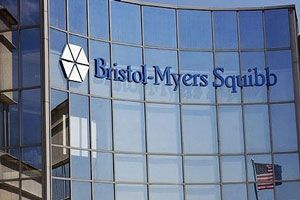Frontline Nivolumab Granted FDA Priority Review in Melanoma
The PD-1 inhibitor nivolumab (Opdivo) has been has been assigned priority review designation from the US Food and Drug Administration (FDA) as a treatment for previously untreated patients with unresectable or metastatic melanoma.
BMS

The PD-1 inhibitor nivolumab (Opdivo) has been has been assigned priority review designation from the US Food and Drug Administration (FDA) as a treatment for previously untreated patients with unresectable or metastatic melanoma. The scheduled date for the FDA’s decision is August 27, 2015.
The application was based on phase III data from the CheckMate-066 trial, in which nivolumab significantly extended overall survival (OS) and progression-free survival (PFS) when compared with dacarbazine in patients with untreated BRAF wild-type advanced melanoma.
“The CheckMate-066 trial marked the first time that a PD-1 immune checkpoint inhibitor showed a survival benefit in a randomized phase III trial,” Michael Giordano, MD, senior vice president, head of Development, Oncology, Bristol-Myers Squibb (BMS), the developer of nivolumab, said in a statement.
In CheckMate-066, treatment with nivolumab improved OS by 58% and PFS by 57% compared with dacarbazine. In patients who were PD-L1-positive, OS was improved by 70% and the objective response rate (ORR) was 52.7% versus 10.8%, for nivolumab and dacarbazine, respectively. Moreover, grade 3/4 adverse events (AEs) were less common in the nivolumab arm.
CheckMate-066 randomized 418 patients in a 1:1 ratio to receive intravenous nivolumab at 3 mg/kg every 2 weeks (n = 210) or dacarbazine at 1000 mg/m2IV every 3 weeks (n = 208). Of the patients enrolled, 61% had stage M1c disease, 36.6% had an elevated lactate dehydrogenase level, and 35.4% were PD-L1 positive, which was defined as ≥5% total membrane staining in tumor cells.
The primary endpoint of the study was OS, with secondary endpoints focused on PFS, ORR, quality of life, and whether or not PD-L1 expression was an effective predictive biomarker for OS. The study allowed investigators to continue treatment beyond initial progression in patients showing clinical benefit and tolerating therapy, to allow for pseudoprogression commonly seen with checkpoint inhibitors. According to findings published inThe New England Journal of Medicine, the 1-year OS rate was 72.9% in the nivolumab arm compared with 42.1% in the dacarbazine arm (HR = 0.42; 99.79% CI, 0.25-0.73; P <.001). The median PFS was 5.1 versus 2.2 months, in the nivolumab and dacarbazine arms, respectively (HR = 0.43; 95% CI, 0.34-0.56;P<.001). The ORR was 40% with nivolumab versus 13.9% with dacarbazine (odds ratio = 4.06;P<.001).
All-grade treatment-related AEs occurred in 74.3% of patients with nivolumab versus 75.6% with dacarbazine. However, grade 3/4 AEs were less common with nivolumab compared with dacarbazine (11.7% versus 17.6%, respectively). The most common nivolumab-related side effects were fatigue (19.9%), pruritus (17%), and nausea (16.5%).
Treatment with nivolumab was found to extend OS, regardless of PD-L1 status. In patients with PD-L1-positive tumors, the HR for OS was 0.30, favoring nivolumab. In those with PD-L1-negative disease, the HR for OS was 0.48. The median OS has not yet been reached in patients treated with nivolumab. In the dacarbazine arm, patients with PD-L1positive disease experienced a longer median OS, at 12.4 months versus 10.2 months.
Nivolumab has FDA-approved indications for unresectable or metastatic melanoma following treatment with ipilimumab (Yervoy) or a BRAF inhibitor, as well as for advanced squamous nonsmall cell lung cancer that has progressed during or following platinum-based chemotherapy.
The PD-1 inhibitor has also shown high response rates in combination with ipilimumab in the frontline melanoma setting. In results from the phase II CheckMate-069 trial, which were recently presented at the 2015 AACR Annual Meeting and simultaneously published online inThe New England Journal of Medicine, nivolumab plus ipilimumab decreased risk of melanoma progression or death compared with ipilimumab monotherapy by 60% in treatment-naïve patients with advanced melanoma.